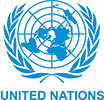 Ahmad -
Ahmad -
THE brutal killing of seventeen Kashmiri freedom fighters by the Indian security forces in India’s occupied Kashmir reflects on Modi’s Hindutva organised terrorism in the Valley. The policy that the BJP’s sponsored government has been applying vehemently advocates the notion that New Delhi invites scowling risks while playing game with this nuclear flash point between India and Pakistan. Jammu and Kashmir Chief Minister Mehbooba Mufti on Saturday requested Prime Minister Narendra Modi to initiate a dialogue process with Pakistan. “Reconciliation is the mantra which we need to follow and therefore, I request Modi ji to engage with Pakistan,” she said. Shekhar Gupta, a leading columnist, says that while Kashmir is “territorially secure, we are fast losing it emotionally and psychologically”
Congress vice president Rahul Gandhi charged that the Narendra Modi government’s policies are “burning” Jammu and Kashmir and flayed any attempt for third party intervention to resolve the issue”. It is being said there should be a discussion on Kashmir with China and Pakistan but my opinion is that Kashmir is India and India is Kashmir and this is our internal matter…our internal business and no one should interfere with it,” he said. In his memoirs, Amarjit Singh Daulat, the former chief of India’s spy agency RAW wrote that “nothing is constant; least of all Kashmir”. But right now, the anomie and anger of the youth, and a worrying people’s revolt against Indian rule, appear to be the only constants. From the Indian perspectives, three factors badly determine to make the Kashmir situation more worsened under Modi’s government. First, he committed a fatal blunder of suspending dialogue with Pakistan on the pretext of Pakistan’s ambassador meeting with Hurriyat leaders. That sent a clear message to all stakeholders and the rest of the world that Modi is reluctant about solving the Kashmir problem with Pakistan.
The second blunder was that after fighting the election on a divisive agenda for the Jammu and Kashmir Assembly poll, the BJP made an opportunistic post-poll alliance with PDP to capture power in Srinagar. That ended whatever legitimacy PDP had in the eyes of the majority of Kashmir and their hope of finding a peaceful resolution through democratic processes. The third but most likely not the last blooper by the Modi government was to politically manipulate a minor “Kashmir” event by some students and activists on JNU campus in February 2016, to almost make it an international issue. Evaluated from the Pakistani perspectives, Modi has committed serious peace offence on three major fronts. Firstly, Modi jettisoned past Indian government’s policy to seek an amicable solution of this nuclear flash point between the two paranoid states. Secondly, instead of adopting moderate policy in the Valley, the Modi government has been committing genocide/mass murder. And thirdly, Modi’s government has been deliberately and intermittently creating border tensions between the two sides, thereby inviting a nuclear war in this region.
And while seen from the global perspectives, Modi’s government has been completely undermining the rule of global law, the recognition of human rights regime , and the demonstration of conduct as responsible democratic-cum- nuclear state. By any standard of global law, the separatist movement cannot be termed as terrorist movement. For what Kashmiris are waging their freedom struggle is not a hidden fact internationally. And of course, they are some major deliberations that need prompt realization by the Modi government to demystify its myth about the Kashmir issue. That it should fairly accept Kashmir as a territorial dispute between India and Pakistan, solution of which must be sought through diplomatic discourse.
That the right of the Kashmiri people of self-determination cannot be wiped out or terminated. Kashmiris have this warranted right to exercise it. That the All Parties Hurriyat Conference (APHC) is the defacto Kashmiri body to negotiate the Kashmir issue with both India and Pakistan. That the lasting peace in South Asian region is concomitantly attributed with the destiny of the Kashmir solution. That a constant policy of belligerence with Pakistan can only serve the mala fide Indian intent domestically yet it cannot serve the Indian interest regionally and globally.
Agreeably the UN’s role in Kashmir issue yet seems pivotal as bonafide peace broker. That there are some important steps that this global body should take in this regard. Michael Kugelman, a South Asia expert at the Washington-based Woodrow Wilson Center for Scholars, says in a DW interview in 2016 that ‘’any UN involvement to resolve the dispute would need to take place behind-the-scenes. The efforts should focus first on getting the two sides to the table, and then urging them to talk, he adds. The UN could play the role of a truly neutral mediator. This is a role that the US has sometimes sought to play, but with little success – particularly because there is mistrust in its relationship with both Islamabad and New Delhi’’.
But I would solicit that UN should boldly intervene into the matter since there are yet valid UN’s resolutions on Kashmir. Though the UN can only be credible mediator on this issue, it has been tactfully exploited by the United States. Mistakenly, the Modi government is under the impression that absence of global criticism of the situation in Kashmir is because of an effective Indian diplomacy. In order to serve Indo-Western interests, the Indian premier has been geo-economically and geo-politically blackmailing the Kashmir issue. Modi is exploiting Western need to use India as a countervailing force to China. And yet, it is Indian day-dreaming that New Delhi could ever suppress this emboldened truth that peace and stability in the region is central to pacification of seven decade old Kashmir dispute between India and Pakistan.


